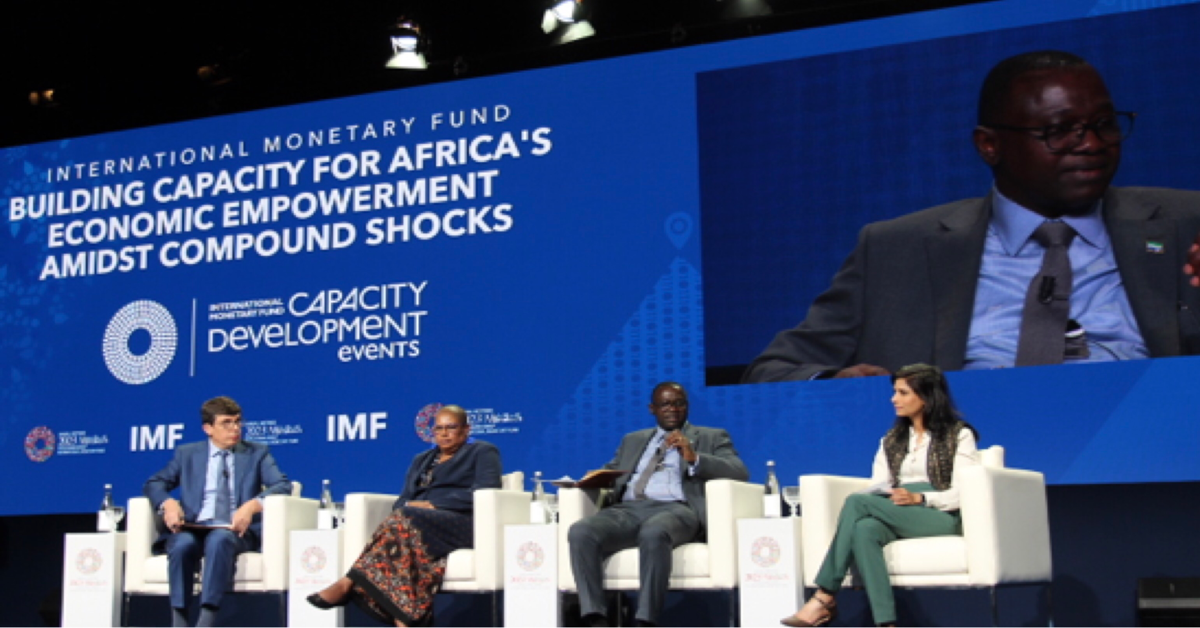The Minister of Finance of Sierra Leone, Minister Sheku A.F. Bangura expresses the roles of the International Monetary Fund (IMF) in enhancing Africa’s capacity.
The Minister made this statement in delivering a speech during the High-Level Capacity Development Talk at the Annual Meetings in Marrakech, Morocco.
The theme of the discussion is“Building Capacity for Africa’s Economic Empowerment amidst Compound Shocks,” and the Minister emphasized two factors that are key to effective capacity development in Africa.
He started his speech by addressing the role of the International Monetary Fund (IMF) in enhancing Africa’s capacity. He underscored the significance of the continent’s absorptive capacity and financial constraints, which, when addressed strategically, could significantly contribute to Africa’s economic empowerment.
The Minister pinpointed that many African nations face challenges due to the limited number of officials and the fragility of institutions responsible for delivering training in various sectors. He continued that these officials often misrepresent multiple responsibilities and tasks.
The Minister emphasized the importance of prioritizing assistance to these countries. Minister Bangura said, “Privatization involves careful planning to ensure that technical assistance (TA) is not overwhelming but targeted and step-staged to align with the capacity of the recipient countries.”
Minister Bangura highlighted that financial constraints are the cost implications of implementing certain reforms, which may require additional investments, saying reforms could necessitate hardware support to complement the assistance provided and failure to plan adequately for these financial considerations could undermine the effectiveness of the training and support provided.
Minister Bangura encouraged the IMF to provide room for such in-person support. He emphasized the value of these IMF-provided trainings and urged partners to recognize their importance in strengthening Africa’s capacity.
In conclusion, Minister Bangura’s speech emphasized the critical role of addressing absorptive capacity and financial constraints as a means to empower Africa’s economic development and resilience.
The Governor of the Central Bank of Seychelles, Caroline Abel, also shared perspicuity during the discussion. She underlined the importance of proximity, noting that having access to training facilities had become a challenge in the past. However, with the IMF’s support and the establishment of training centres closer to the countries, the virtual system proved to be a valuable resource. This approach improved the understanding of on-the-ground realities and fostered better discussions between the IMF and country authorities.
Minister Bangura echoed the significance of in-person training and long-term engagement with governments. He suggested that a combination of virtual and hands-on support would offer clear opportunities in critical areas, such as enhancing the capacity for prudential or banking supervision in the Central Bank and effective budgeting systems in the Ministry of Finance.











